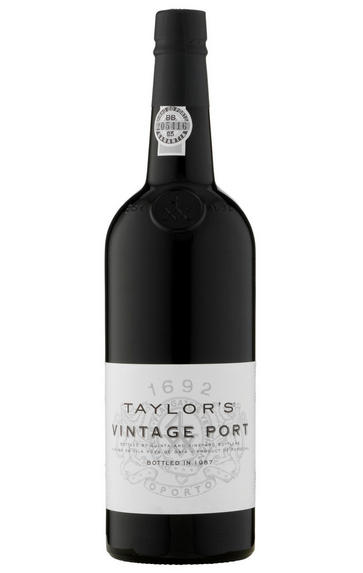
2000 Taylor's, Port, Portugal
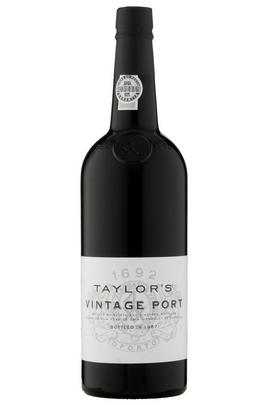
Critics reviews
Robert M. Parker, Jr. - 30/10/2002
About this WINE
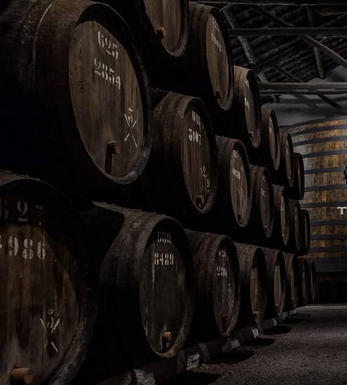
Taylor Fladgate
Taylor's Port, sometimes called Taylor-Fladgate (particularly in the U.S.) is one of the most well-known of all Port wine brands.
The first Taylor joined in 1816, followed later by a Fladgate and a Yeatman. Taylor’s is the only Port wine shipper to remain completely independent throughout its history. British ownership continues to this day, when, after the last Yeatman, Dick, died in 1966, the firm passed via his widow to her nephew, Alistair Robertson.
Adrian Bridge, Alistair's son-in-law, is the current Managing Director. David Guimarãens leads the winemaking team that is responsible for maintaining Taylor’s position as a premium Port wine producer.
In addition to Vintage Port, Taylor's has also enjoyed considerable success with its Quinta de Vargellas, under which label Vintage wine is made in good years that have not been declared.The range has been augmented by the 116-hectare Quinta de Terra Feita in the Pinhão valley and Quinta do Junco, Vila Nova da Gaia and Xisto.
The Port wines are typically closed and austere when young; it is only with adequate ageing that they loosen up and offer their subliminal qualities. Worth waiting for, though, to secure stocks one is best advised to buy young.
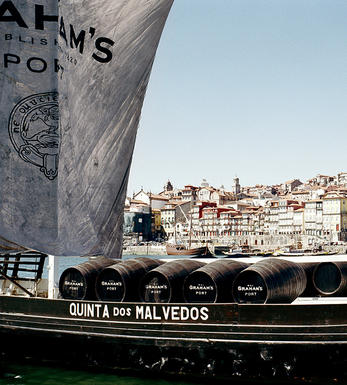
Vintage Port
Vintage Port accounts for only a small percentage of the total Port production - which includes Tawny, Ruby, Late Bottled Vintage, Single Quinta Vintage styles, among others - but is the finest, longest-lived and most expensive style that is produced. The best are as good as any wine in existence.
With the exception of legendary vineyards like Quinta do Noval Nacional and Quinta do Vesuvio, Vintage Port is made from a blend of wines from a producer's finest plots. It is aged for around 18 months in wooden casks before bottling; from then on the watch-word is patience. At least 15 years ageing – and for the top wines it will be significantly longer – is required before the tannins, spirit and fruit are fully integrated. Indeed, the finest examples can last well over 50 years.
Vintage Port is only made in exceptional years (normally around three times per decade) with considerable stylistic variation between different years and shippers. However, they all share a sweet, warming, spicy richness, power and complexity. In other good but not great vintages, many shippers produce a Single Quinta Vintage Port from their finest vineyard. These are made in the same way and have the same style as Vintage Port but tend to mature faster and are less profound. All Vintage Port throws a sediment as it matures, and thus requires decanting.
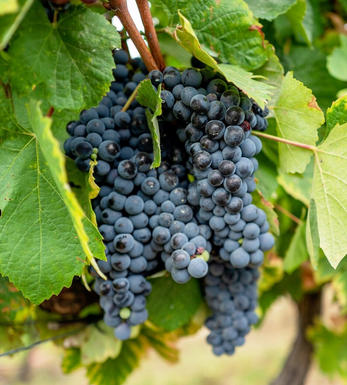
Port Blend
There are around 40 different grape varieties permitted in the production of Port - however the vast majority of Ports are produced from a blend of 5 grapes - Touriga Nacional, Touriga Francesca, Tinta Barroca, Tinta Roriz, and Tinto Cão.
Touriga Nacional produces small, dark-skinned grapes that produce opaque black wines of great extract and high tannins - it gives grip, body, and structure to the blend.
Touriga Franca has a thinner skin and consequently produces wines lighter in colour and tannins than Touriga Nacional. It contributes fruit, aroma, suppleness and roundness.
Tinta Roriz is the Portuguese name for Tempranillo and its high sugar content and low acidity contribute colour and fruit.
Tinta Barroca which is normally grown at highish altitudes and on north-facing slopes, is prized for producing wines of delicacy, finesse and with smooth, velvety fruit. It brings elegance and sweet, ripe fruit to the final blend.
Finally Tinto Cão produces fine and complex wines, though it is probably the least important of the 5 grapes as its painfully small yields have reduced plantings to almost insignificant levels.


Buying options
Add to wishlist
Description
Taylor's is one of the most well known of all Port brands. The first Taylor joined in 1816, followed later by a Fladgate and a Yeatman. Taylor’s is the only Port shipper to remain completely independent throughout its history. British ownership continues to this day. The wines are typically closed and austere when young; it is only with adequate ageing that they loosen up and offer their subliminal qualities. They are worth waiting for, though.
With a beautiful, rich and complex nose, on the palate this is quite dry. There is a serious juxtaposition of the ripe and dried fruits with expansive tannins. This has challenging, layered flavours and the promise of longevity. Very expressive and powerful Port.
wine at a glance
Delivery and quality guarantee